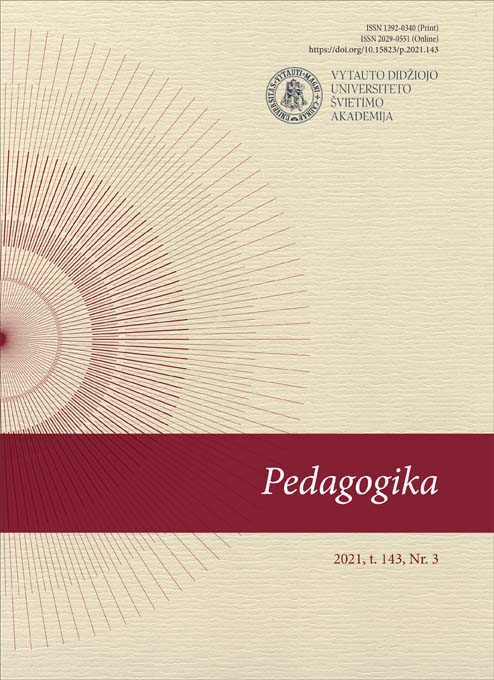Išmokimo lygių taksonomija: terminijos darninimas ir sisteminimas
A Taxonomy of Learning Outcomes Levels: Harmonization and Systematization of the Terminology
Author(s): Kęstutis PukelisSubject(s): Social Sciences, Education
Published by: Vytauto Didžiojo Universitetas
Keywords: Intelect; Intelligence; Knowing; Ability; Skill; Mastery;
Summary/Abstract: In the article five levels of the taxonomy of learning outcomes in dimensions of intellect (innate) and intelligence (developed) are presented. The first level represents “aptitude” (lith. gabumas), situated in the intellect dimension. It is inborn faculty of a person to learn. The rest four levels are situated into the dimension of intelligence. “Knowledge” (lith. žinios) and “knowing” (lith. žinojimas) or erudition are representing the second level. It is the result of interaction between nature (aptitude) and nurturing (learning) or genotype-environment interaction. It means that aptitude acts as a discriminator, selecting what kind of knowledge is of interest or need to acquire from the environment. “Ability” (lith. gebėjimas) represents the third level. Ability is application of the knowledge into the practice striving to achieve something. Ability as a mode of action does not have strict requirements. Because of that not all actions lead to success. Unsuccessful trials are named as inability. Hence, ability is an eclectic level. Problems of translating words related with term “ability” are discussed. Use of abilities in practice leads to the conclusion that if some parts of action or activity are performed following strict requirements, probability of success is increasing. “Skill’ (lith. mokėjimas) is the fourth level. Skill is ability to do something well. Following strict requirements in performing action is the main attribute distinguishing ability from the skill, why this is a level of “competence”. The fifth level is “mastery” (lith. įgūdis). Mastery is a skill developed till “automatic action”. Automatic performance of skills allows to shift focus on solving more sophisticated problems, why this refers to level of mastery or “professionalization”.
Journal: Pedagogika
- Issue Year: 143/2021
- Issue No: 3
- Page Range: 176-194
- Page Count: 19
- Language: Lithuanian

